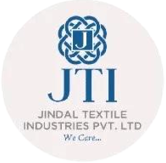- Model Town, Panipat, Haryana
info@jindaltex.com
Synthetic Yarn Supplier: Powering The Modern Textile Industry
Posted by Admin on June, 23, 2025
The textile industry is one of the oldest and most significant sectors globally, evolving through centuries to meet changing demands in fashion, functionality, and innovation. At the heart of this industry lies a crucial component—yarn. Among the different types of yarn available, synthetic yarn has emerged as a vital material, known for its durability, cost-effectiveness, and versatility. The role of a synthetic yarn supplier is, therefore, pivotal in supporting a wide range of industries, from fashion and home furnishings to automotive and industrial applications.
What is Synthetic Yarn?
Synthetic yarn is made from man-made fibers, typically derived from petrochemicals. Common types include polyester, nylon, acrylic, and polypropylene. Unlike natural yarns such as cotton or wool, synthetic yarns are engineered to possess specific qualities such as high tensile strength, resistance to abrasion, quick-drying properties, and elasticity. These characteristics make synthetic yarn suitable for various applications that demand performance and longevity.
Role of a Synthetic Yarn Supplier
A synthetic yarn supplier acts as the bridge between yarn manufacturers and textile producers. Their primary responsibility is to provide consistent, high-quality synthetic yarns tailored to the requirements of different clients. This role involves:
-
Product Sourcing and Inventory Management: Suppliers maintain relationships with manufacturers to source different types and grades of synthetic yarn. They ensure a ready supply of inventory to meet market demands without delays.
-
Customization: Depending on client needs, suppliers may offer yarns in specific deniers (thickness), colors, finishes, or blends, enabling textile producers to achieve the desired results in their products.
-
Quality Assurance: Reliable suppliers conduct stringent quality checks to ensure their yarn meets industry standards for strength, colorfastness, and durability.
-
Technical Support: Many synthetic yarn suppliers provide technical consultation to help manufacturers select the right yarn for specific applications, whether for sportswear, upholstery, carpets, or industrial fabrics.
Market Demand and Applications
The demand for synthetic yarn has grown exponentially, driven by industries seeking cost-effective, durable alternatives to natural fibers. Polyester yarn, for instance, is widely used in apparel manufacturing due to its wrinkle resistance and moisture-wicking properties. Nylon is favored for hosiery and activewear because of its elasticity and strength. In the home furnishing sector, synthetic yarns are used for curtains, carpets, and upholstery fabrics.
Moreover, the automotive and construction industries utilize high-strength synthetic yarns in seat belts, airbags, ropes, and geotextiles. This wide range of applications highlights the critical role of synthetic yarn suppliers in various sectors of the economy.
Sustainability and Innovation
As environmental concerns grow, synthetic yarn suppliers are innovating by offering recycled yarns made from PET bottles and other post-consumer waste. These eco-friendly alternatives reduce environmental impact while maintaining the performance characteristics of virgin synthetic yarn.
Conclusion
Synthetic yarn suppliers play an indispensable role in the global supply chain, ensuring that industries have access to high-quality, performance-driven materials. As technology and sustainability efforts evolve, these suppliers are not just fulfilling demand but are also shaping the future of the textile and industrial fabric landscape. Their expertise, adaptability, and commitment to quality make them key players in powering modern production.
Search
Category
Recent Posts

Leave a Comment